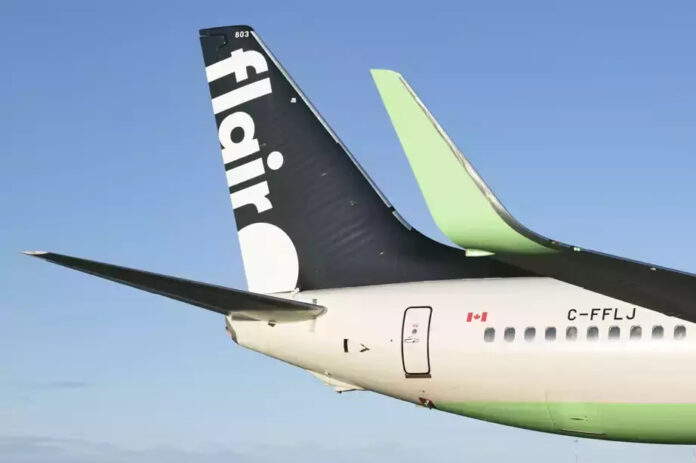Passengers aren’t the only ones feeling cramped these days in the airline industry. While the industry has long been dominated by Air Canada and WestJet, the emergence of new carriers, notably Flair Airlines and Lynx Air, has shaken up the sector, injecting new competition into a once complacent market.
Most airlines are rolling out plans to accelerate growth over the next year, adding more planes to an already congested fleet – and offering cheaper fares to busier destinations.
“Every time new players try to establish themselves in the market, it’s a boon for consumers,” says former Air Canada COO Duncan Dee.
There have never been so many companies offering flights on Canada’s most popular routes, such as Montreal-Toronto, Toronto-Vancouver and Vancouver-Calgary – up to six currently compared to two a few years ago – and what’s more with reduced prices.
The cost of a round-trip plane ticket for a flight between two Canadian cities fell to $289 on average this fall, a decrease of 24% compared to 2019 prices and 11% compared to to last year, according to the reservation app Hopper.
Competition between air carriers will also be felt this winter when travelers want to enjoy a warm vacation.
More than three-quarters of Flair’s ultra-low-cost trips this winter will be to sun destinations in the United States, Mexico and the Caribbean, compared to 40% last winter, CEO Stephen Jones revealed in interview last month. The company also plans to increase its fleet by almost 25%, to 26 aircraft next year.
Lynx, which held its maiden voyage in April 2022, aims to grow to 17 aircraft from the current nine. The newest addition to its service offering connects Toronto and Los Angeles for $129 one way, taxes included. The cheapest Air Canada ticket on this same route and on the same dates was $490.
“There’s a lot of investment in this market because it’s underserved by low-cost carriers,” Lynx President and CEO Merren McArthur says of sun destinations, especially flights departing from the UK. Toronto Pearson Airport.
Meanwhile, Porter Airlines has purchased 50 132-seat Embraer E195s, hoping to increase its fleet from 46 to 79 planes by 2025.
“They won’t hesitate to fight with others,” John Gradek, who teaches aviation management at McGill University, says of Porter.
The carrier, in business for 17 years, joined the five other airlines that fly between Toronto and Vancouver in February. It also plans to offer service between Toronto and Orlando in November.
“I would say it’s a very competitive market,” observes Porter chief executive Michael Deluce, who also expresses doubts about the future of the system in its current state.
“I think the current competition is not a viable long-term proposition. I’m not going to point out which ones, but I think there are some carriers that won’t be here in 12 or 24 months. »
Meanwhile, Air Canada aims to operate 8% more flights to sunny locations this winter compared to 2019. WestJet plans to achieve 15% more overall capacity next year compared to last year.
Increased competition translates into lower prices, especially if demand falls at a time when consumer spending is slowing.
“In the Canadian travel market this fall, you’re going to do a hell of a deal,” says Gradek.
However, with the exception of Mexico and the Caribbean, international travel supply remains below demand, driving up prices.
The price of round-trip flights increased this fall by 22% for Europe, 16% for South America and 32% for Africa and the Middle East compared to 2019, according to Hopper.
In Canada, regional fares are also on the rise, except for the most important routes, as the industry’s two dominant players retreat around their old hubs.
Over the past year, WestJet, headquartered in Calgary, has reduced service to select cities in Ontario, Quebec and Atlantic Canada to refocus on the west.
Air Canada, based in Montreal, has followed this trend by concentrating its activities in central and eastern Canada, while reducing its activities in the west.
“The bottom line: play where you can win,” says consulting firm AirTrav president Robert Kokonis.















